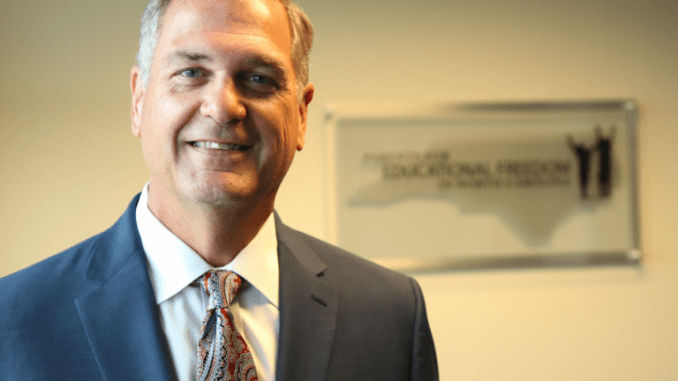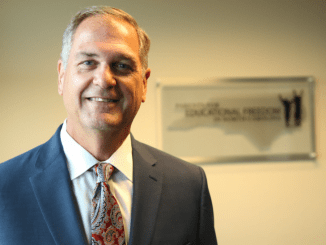
You can pretty much guarantee that year after year, teachers’ unions and their allies will make one claim:
—Our public school teachers are not paid enough and our public schools are underfunded.
It is happening right now in North Carolina, but there is something blatantly missing from the teacher pay debate.
If funding alone is the answer:
- Why are thousands of parents and families choosing to explore their educational options through private, public charter, and home schools?
- Why are those options consistently growing each year while enrollment in our state’s traditional public schools is consistently declining?
- Why are private and public charter school teachers willing to accept dramatically lower pay when they could potentially earn more in traditional public schools?
- And why, if teacher pay is so closely tied to quality education, are so many families choosing alternatives where teachers are paid less in schools that operate with less?
The latest trends may provide valuable insight to these questions.
For example, Wake County public schools grew by just 42 students for the 2018-2019 academic year rather than the projected 1,900 students. In contrast, nearly one in five North Carolina students are now opting out of traditional public schools. The number of public charters has nearly doubled since 2011 and homeschool growth surged nearly 67 percent between 2010 and 2018.
Interestingly, private school teachers earn significantly less than their counterparts in the public school system. According to the North Carolina Christian School Association, average annual teacher pay for members of the association is $21,700 in rural areas and $33,721 in more populated and urban regions.
According to ZipRecruiter, the average salary of a private school teacher in North Carolina is just over $30,000. The results are similar when we talk about public charter schools—a report from the Charlotte Observer showed that most public charter school teachers “make from the low $30,000s to the high $40,000s.”
By comparison, “public education only” advocates argue yet again that public school teachers should be better paid, decrying the official average of around $54,000 annually for teachers across the state.
I applaud the fact that NC public school teachers have received a pay raise every year for the last five. I also know that there is more to this equation than just pay, including consistent challenges with bureaucratic restrictions, lack of discipline and support from administration, safety concerns, unmanageable classroom size, ever-changing evaluation standards, restrictions on academic freedom, and the list goes on.
It is time we began looking beyond money alone to discover why school choice is blossoming. In doing so, it becomes more obvious why parents are increasingly choosing these alternatives—they are looking for a school that is the best fit for their child, instead of following an antiquated system that forces all children to fit into one box.
Most of those alternative schools have teachers who receive far less pay and operate with far less funds. Educators and legislators must address what has been missing from the debate.
Only then will we be able to institute necessary educational reforms that will improve ALL schools to best meet the needs of their consumers: parents and children.
Mike Long is the President of Parents for Educational Freedom in North Carolina (PEFNC), a non-profit organization that advocates for quality educational options through parental school choice.


